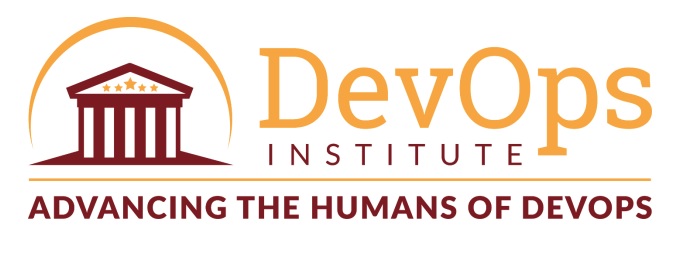Check Point® Software Technologies Ltd.(link is external) announced that it has ranked as a Leader and the only Outperformer for its Check Point Quantum(link is external) Security Solutions in GigaOm’s latest Radar for Enterprise Firewall report(link is external).
It is typical for frameworks or practices to create a body of knowledge or "BoK" upon which they and their offerings are based. Traditionally, BoK's are encapsulated in one or more books, written by one or more authors and updated every few years.

In a space that is as global and fast-moving as DevOps, it has been near impossible to point to a single source as the official DevOps BoK. In fact, DevOps Institute has been advocating for a Collaborative Body of Knowledge (cBok) for several years. To my mind, bodies of knowledge should not be fixed.
The model of an inclusive DevOps Collaborative Body of Knowledge (DcBok) has now become a reality. DevOps Institute‘s new SKILup Playbook Library is a series of topics or role-based holistic guidance that marries thought leadership from industry experts with an orchestrated set of dynamic assets and artifacts from a range of vetted sources. Without a fixed form factor, each playbook in the series can be updated and added to in regular increments to keep them fresh.
Every SKILup Playbook is built upon four "start where you are" pillars and includes twelve research chapter reports plus additional content for ongoing discovery and support.

The first SKILup Playbook is aptly named The DevOps Journey with chapter reports by industry experts such as Shaaron Alvares, Matthew Skelton, Andi Mann, Helen Beal, JP Garbani, Karen Skiles and Eveline Oehrlich, DevOps Institute's Research Director who is leading this initiative. The DevOps Journey Playbook includes orchestrated collaborative content from a variety of other public sources in order to present this Collaborative Body of Knowledge (cBok) in a digestible, dynamic and digital way for the DevOps Human, including:
Explore and Discover
■ Key topics around the vision, mission and objectives of the DevOps Journey.
■ What success looks from case studies and vertical markets.
■ The landscape of the "State of DevOps" today and market insight.
Understand and Learn
■ Frameworks for understanding DevOps and other related industry practices.
■ Functional and technical content including glossary and certification information.
Plan, Practice and Do
■ The cultural aspects of the DevOps Journey including skills, role and workplace structures.
■ Content around key functional and process-oriented tasks including automation and industry research.
Optimize and Improve
■ Performance management including measurement and metrics around key performance indicators, objectives and key results.
■ A library of community resources to support discussions and movements associated with improving daily work performance.
Every SKILup Playbook will follow the same model.
Next up in the SKILup Playbook Library – The Site Reliability Engineering (SRE) Playbook (with more to come). Stay tuned!
DevOps Institute will be continuously updating the DevOps Journey playbook(link is external) and others with regional and global perspectives for actionable strategies and implementations. We invite your feedback at customerservice@devopsinstitute.com(link sends e-mail) and welcome interest in participating in our SKILup Playbook Library.
Industry News
Postman announced new releases designed to help organizations build APIs faster, more securely, and with less friction.
SnapLogic announced AgentCreator 3.0, an evolution in agentic AI technology that eliminates the complexity of enterprise AI adoption.
GitLab announced the general availability of GitLab Duo with Amazon Q.
Perforce Software and Liquibase announced a strategic partnership to enhance secure and compliant database change management for DevOps teams.
Spacelift announced the launch of Saturnhead AI — an enterprise-grade AI assistant that slashes DevOps troubleshooting time by transforming complex infrastructure logs into clear, actionable explanations.
CodeSecure and FOSSA announced a strategic partnership and native product integration that enables organizations to eliminate security blindspots associated with both third party and open source code.
Bauplan, a Python-first serverless data platform that transforms complex infrastructure processes into a few lines of code over data lakes, announced its launch with $7.5 million in seed funding.
Perforce Software announced the launch of the Kafka Service Bundle, a new offering that provides enterprises with managed open source Apache Kafka at a fraction of the cost of traditional managed providers.
LambdaTest announced the launch of the HyperExecute MCP Server, an enhancement to its AI-native test orchestration platform, HyperExecute.
Cloudflare announced Workers VPC and Workers VPC Private Link, new solutions that enable developers to build secure, global cross-cloud applications on Cloudflare Workers.
Nutrient announced a significant expansion of its cloud-based services, as well as a series of updates to its SDK products, aimed at enhancing the developer experience by allowing developers to build, scale, and innovate with less friction.
Check Point® Software Technologies Ltd.(link is external) announced that its Infinity Platform has been named the top-ranked AI-powered cyber security platform in the 2025 Miercom Assessment.
Orca Security announced the Orca Bitbucket App, a cloud-native seamless integration for scanning Bitbucket Repositories.
The Live API for Gemini models is now in Preview, enabling developers to start building and testing more robust, scalable applications with significantly higher rate limits.




